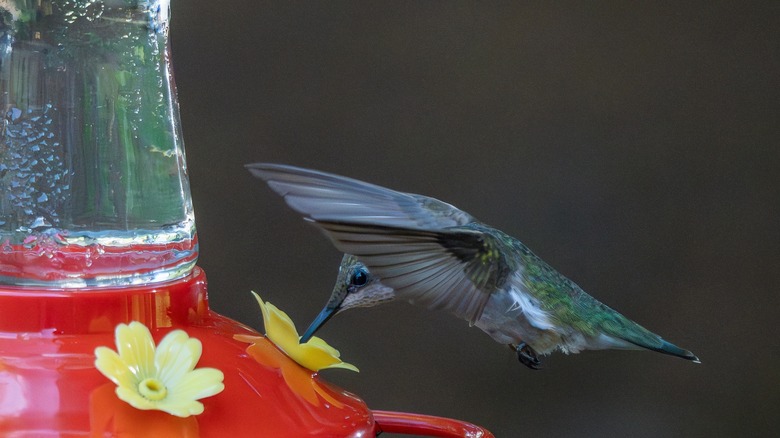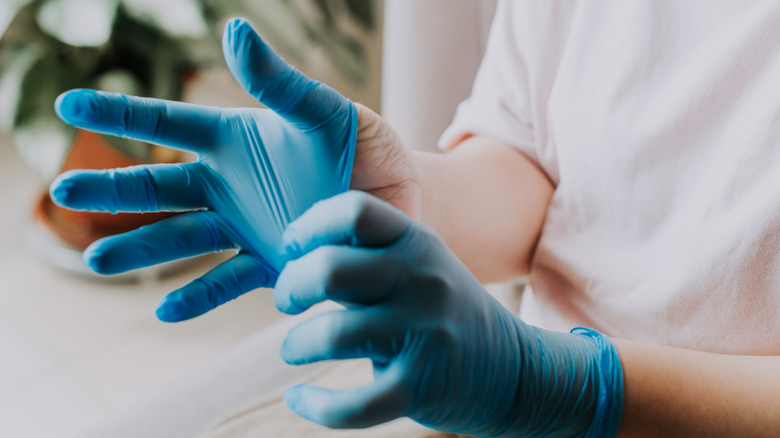Don't Make A Big Mistake When Cleaning Hummingbird Feeders At The End Of The Season
If you are a well-informed hummingbird watcher who owns your own feeders, you probably take them down at the end of the season to give them a thorough wash. This helps reduce the spread of disease among bird populations, but it can also put you at risk if you do not take one very important precaution. You must wear gloves while cleaning a hummingbird feeder. This way, you have a layer of protection between your hands and the diseases and viruses that birds can pass onto humans.
Hummingbird feeders are also a breeding ground for microbes. Research revealed that these microbes do not generally pose a threat to the health of birds or humans. However, there is a very small amount that has actually been linked to harmful diseases. This is yet another reason to protect your hands with gloves when cleaning your hummingbird feeder. Now that you know more about the risks of touching these feeders with your bare hands, make sure you are always wearing gloves throughout the process to protect your health, that of your family, and that of the hummingbirds that visit your yard.
Wear gloves to protect yourself from viruses
The viruses that you could potentially contract from hummingbird feeders pose serious health risks. This includes Avian flu, which can be spread via hummingbird feeder. Although this flu does not infect humans often, it is still possible and can even result in death. Humans who contract avian flu can experience a wide range of symptoms, such as pneumonia, difficulty breathing, fever, and more. It is possible to become infected with this virus from your hummingbird feeder by simply touching it and then touching your eyes, nose, or mouth.
Hummingbird feeders may also contain salmonella bacteria that is harmful to humans. You may contract this if you come into contact with infected bird feces while touching your feeder. Symptoms of salmonella infections include diarrhea, fever, abdominal cramps, chills, headaches, nausea, and vomiting.
You can reduce the risk of contracting avian flu, salmonella, and other ailments from your hummingbird feeder by slipping on rubber gloves before touching it. While cleaning the feeder, be sure to avoid touching your face or any other surface. Immediately dispose of your gloves once you are done handling the feeder. Do not forget to wash your hands thoroughly after you are done. To safely clean your hummingbird feeder, use a solution made of either hydrogen peroxide and water or vinegar and water.

